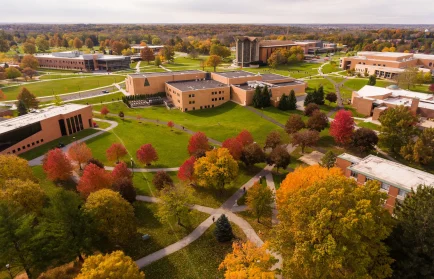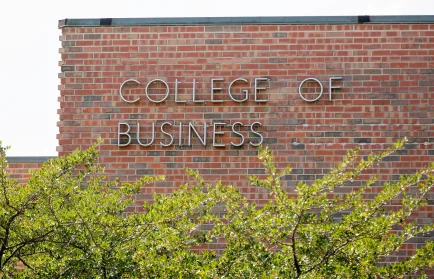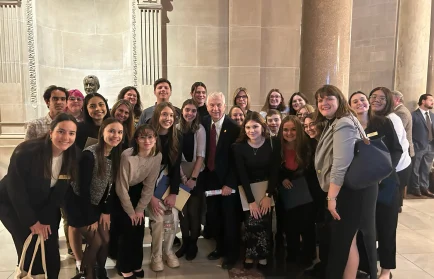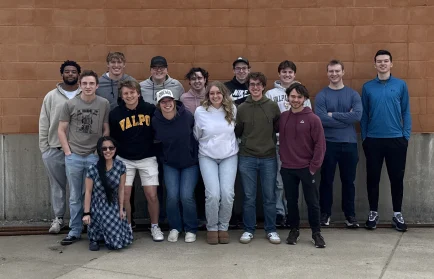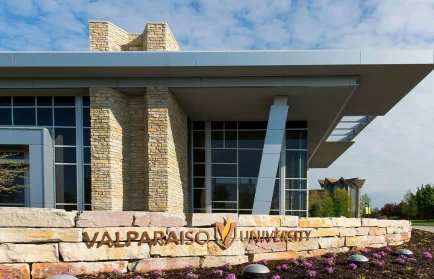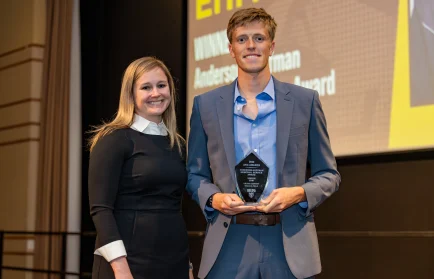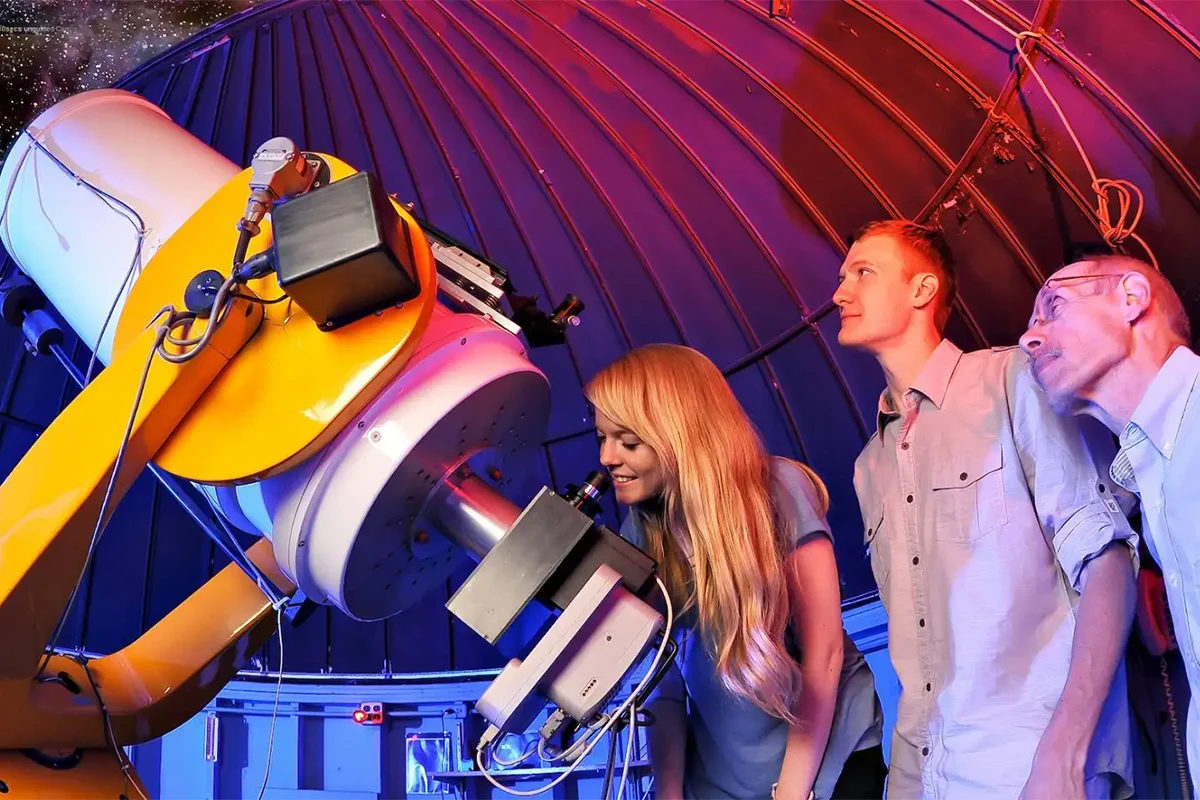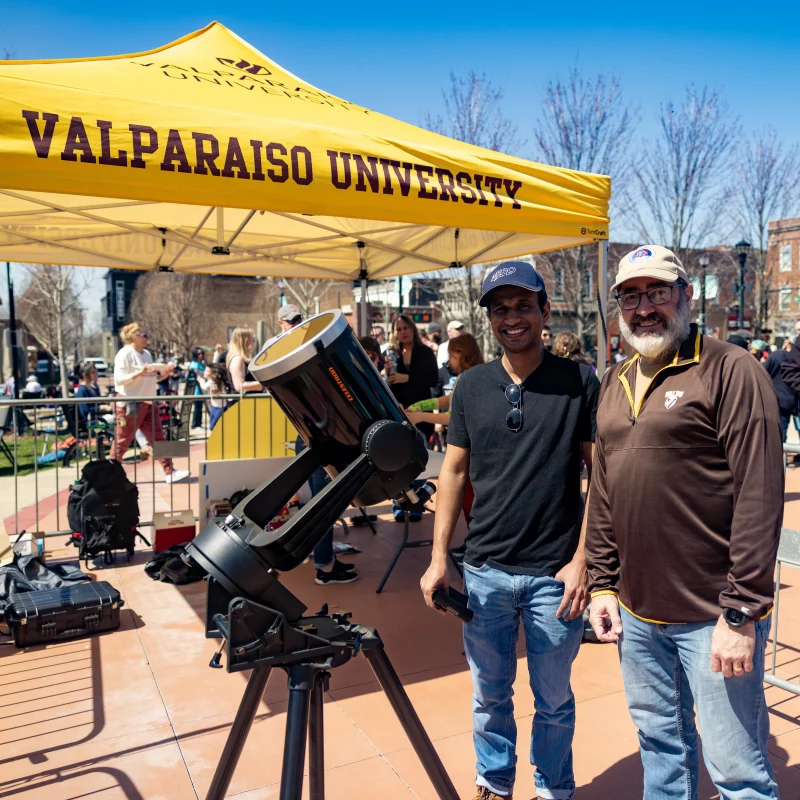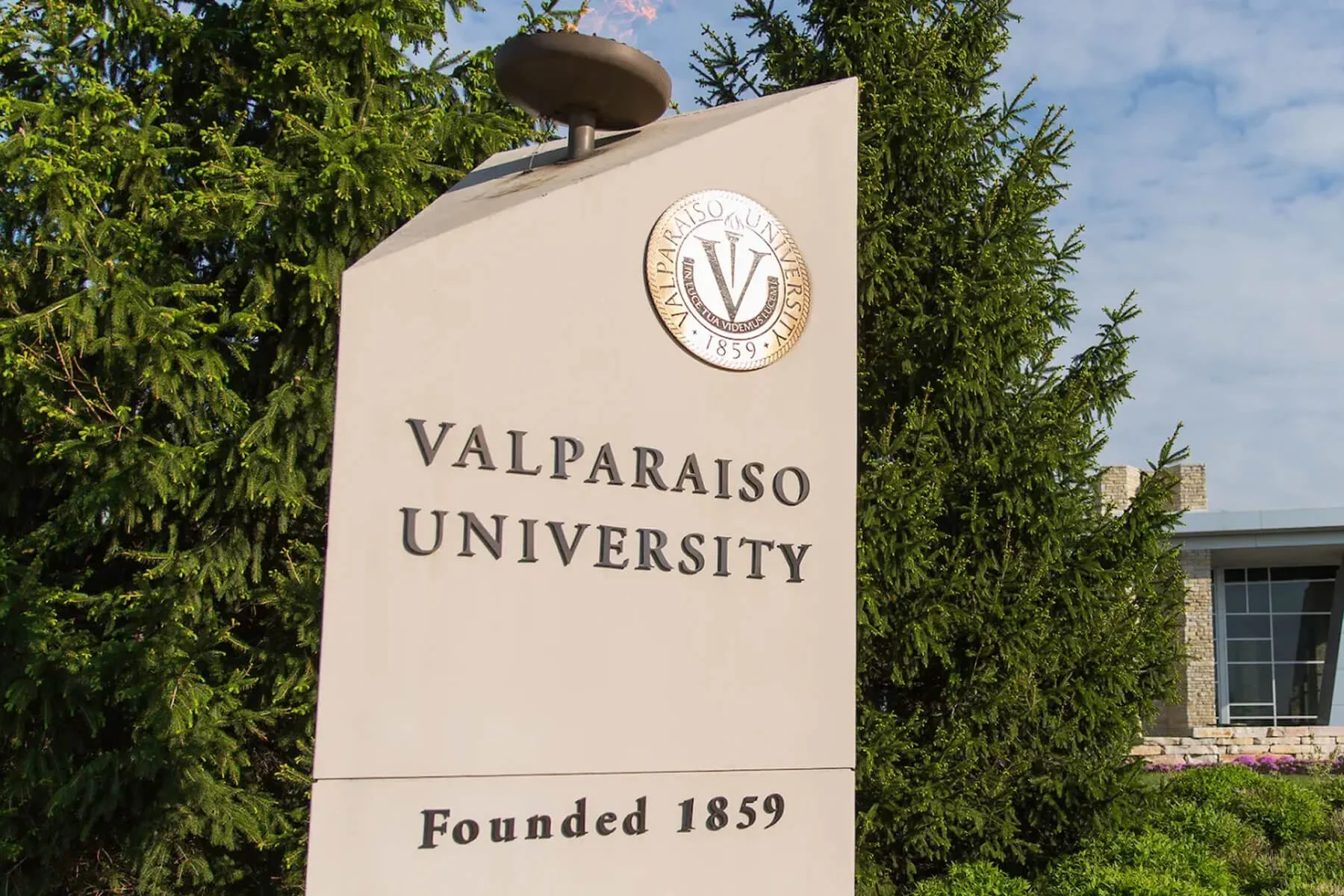Astronomy and Space Science
Here, our students aren’t just observers; they’re active participants, researchers, and astronomers – starting day one.
About Our Astronomy Degrees
Equipped with professional‑grade instruments, real‑world problem‑solving opportunities, and pioneering research, our astronomy and space science students bring the cosmos within reach—probing the universe’s immensity while making their mark on Earth.
There are no prerequisites for first-year students enrolled in Valpo’s astronomy and space science program; however, first-year students must be prepared to take Calculus I (MATH 131).
Transfer students entering the program during their second year should have taken at two previous semesters of calculus-based physics and labs.
The Valparaiso University Experience – also known simply as VUE – is our University-wide general education core. In VUE, students of all majors build up skills in communication, critical thinking, and cultural awareness. Grounded in those pillars, students are ready to take their wonder and understanding of the galaxy even farther.
Depending on their post-graduate goals, Valpo students can choose one of two paths for their major: a graduate school sequence tailored for those who wish to pursue a graduate-level degree or a non-graduate school pathway for those who plan on directly entering the field upon graduation.
Students can also choose to add one of three concentrations to their major for optimal career readiness:
- The astrophysics concentration is designed for students who dream of exploring the universe’s fundamental questions. By graduation, students with this concentration will be prepared for advanced astrophysics research and the physical-mathematical principles that govern the stars.
- Our space science concentration focuses on the rapidly expanding space industry, emphasizing satellite technology, space exploration, and aerospace innovation.
- The public science concentration is perfect for students who aim to inspire others through science communication, translating complex concepts into compelling narratives. This is recommended for students seeking careers in education, outreach, and science journalism.
| Astronomy and Space Science Core | 34 Cr. | |
|---|---|---|
| ASTR 101 | Astronomy | 3 Cr. |
| ASTR 101L | Astronomy Laboratory | 1 Cr. |
| ASTR 221 | Observational Astronomy | 1 Cr. |
| ASTR 252 | Introduction to Stellar Astronomy | 3 Cr. |
| ASTR 253 | Introduction to Galactic Astrophysics, And Cosmology | 3 Cr. |
| ASTR 445 | Senior Research in Astronomy | 1 Cr. (2 credits) |
| PHYS 141 | Newtonian Mechanics | 3 Cr. |
| PHYS 141L | Experimental Physics I | 1 Cr. |
| PHYS 142 | Electricity, Magnetism, & Waves | 3 Cr. |
| PHYS 142L | Experimental Physics II | 1 Cr. |
| PHYS 243 | Modern Physics | 3 Cr. |
| PHYS 245 | Advanced Lab 1 | 1 Cr. |
| PHYS 246 | Data Analysis in Physics & Astronomy | 1 Cr. |
| PHYS 250 | Mechanics | 3 Cr. |
| PHYS 314 | Writing in Physics and Astronomy | 2 Cr. |
| PHYS 360 | Thermal Physics | 3 Cr. |
| PHYS 499 | Physics Colloquium | 0 Cr. |
| Courses Recommended For Students Intending to Pursue Graduate Study in Astronomy or Astrophysics: | 9 Credits | |
|---|---|---|
| PHYS 371 | Electromagnetic Fields | 3 Cr. |
| PHYS 381 | Advanced Mechanics | 3 Cr. |
| PHYS 421 | Quantum Mechanics I | 3 Cr. |
| Additional Recommended Courses: | 12 Credits | |
|---|---|---|
| One year of Chemistry | ||
| CS 157 | Algorithms and Programming | 3 Cr. |
| PHYS 490 | The Scientific Endeavor | 3 Cr. |
To view a list of Minor Requirements and Courses visit our catalog page.
Student Success
“My experience in Valpo’s astronomy program has been amazing. I was fortunate enough to do real research the summer between my freshman and sophomore years, which holds amazing opportunities – like using a professional research telescope or analyzing real data from stars.”
– Hunter Wood ’26
Physics & Astronomy
Meet Our Faculty
Professors. Mentors. Friends. At Valparaiso University, you will work on real-life problems alongside faculty leaders with decades of business experience and a true desire to do what’s best for you.
